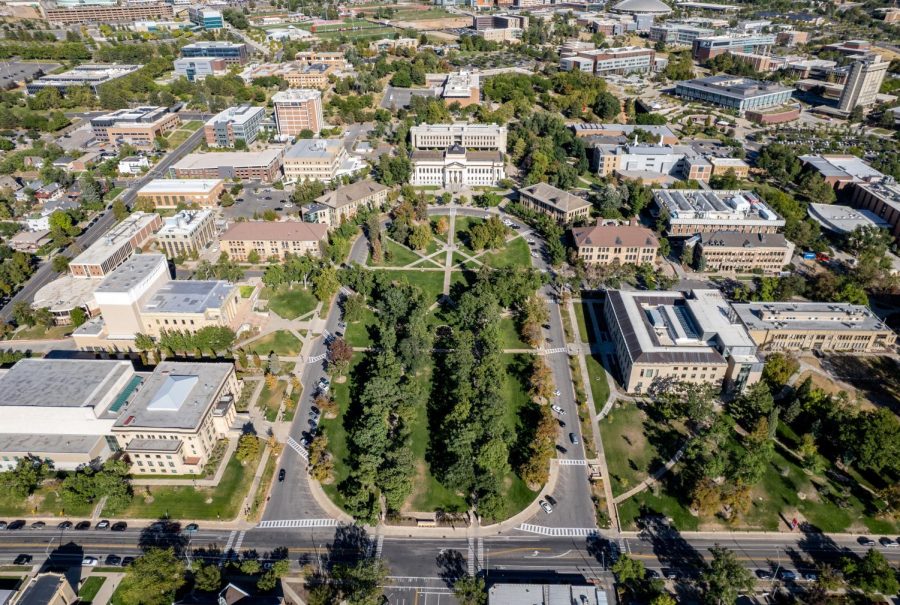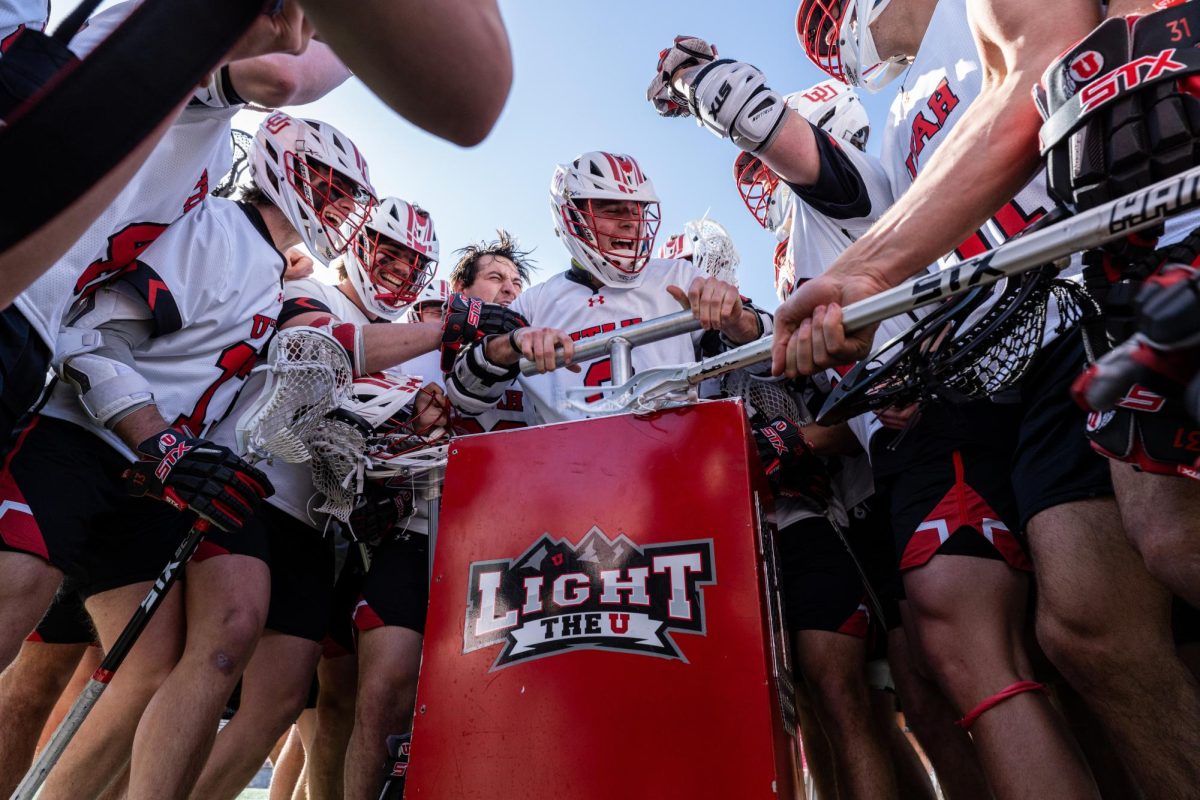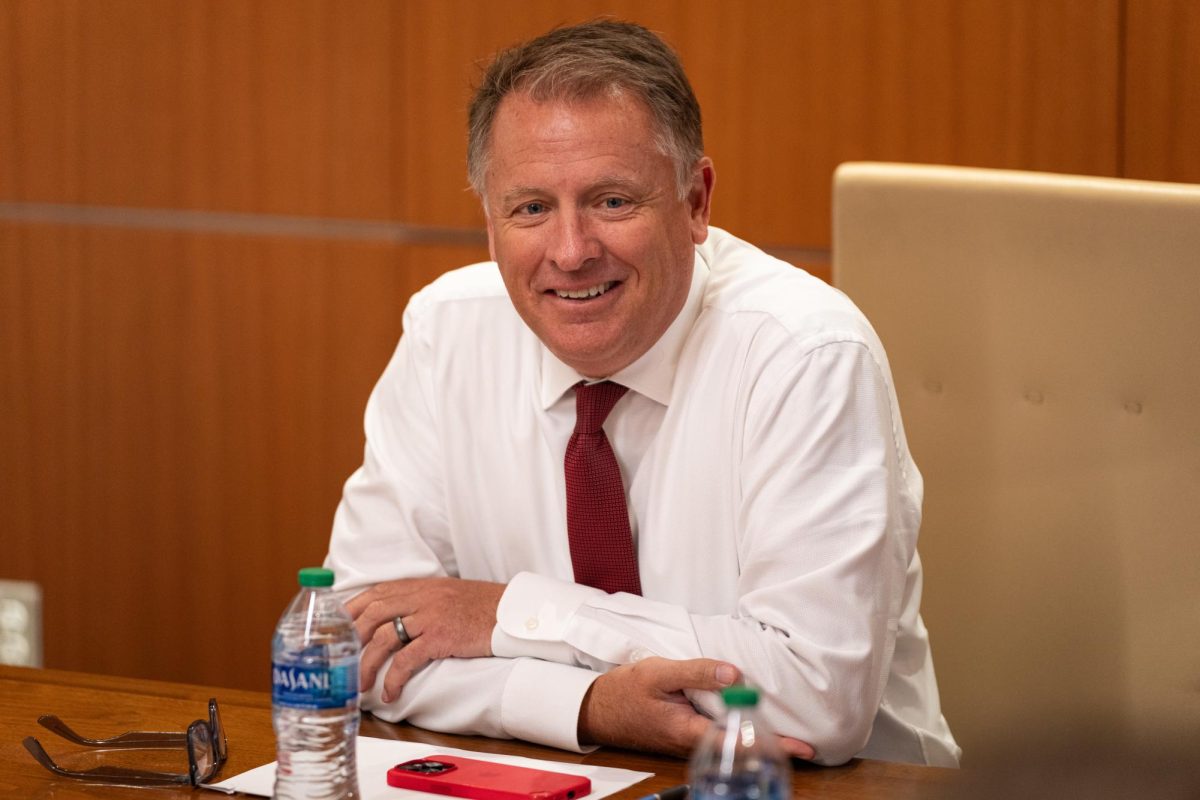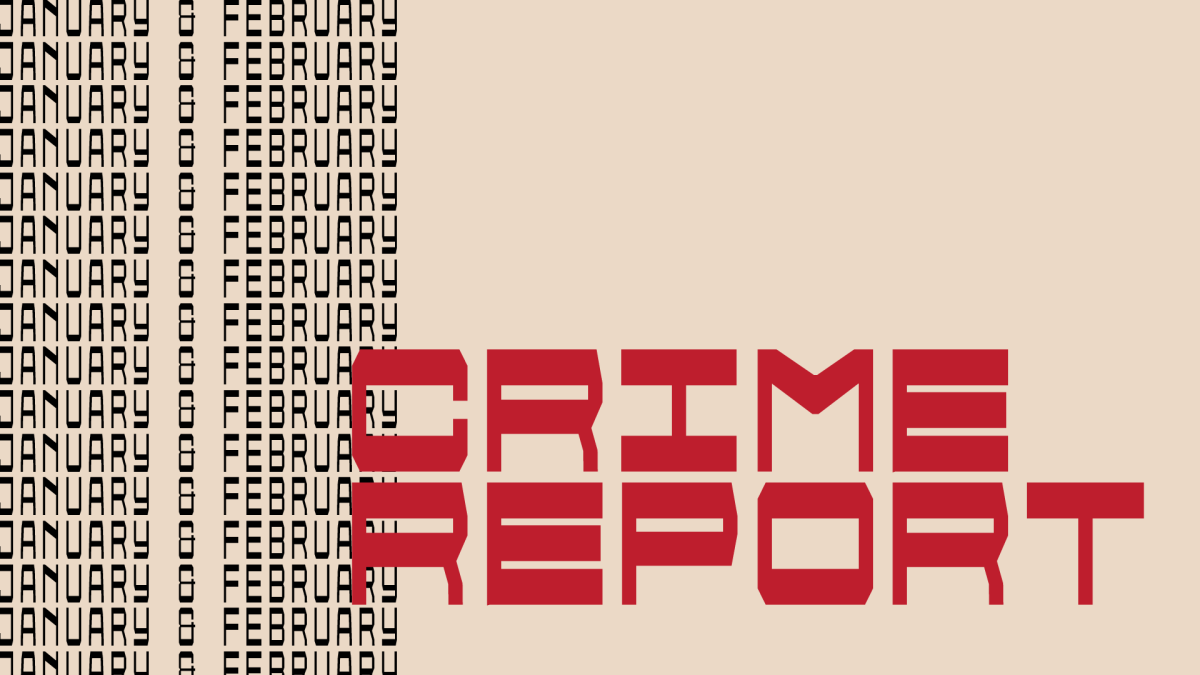U Makes Strides to Build a More ‘transfer student-receptive culture’
Presidents Circle at University of Utah in Salt Lake City, Utah on Sept. 18, 2022. (Photo by Xiangyao “Axe” Tang | The Daily Utah Chronicle)
May 27, 2023
Before Emily Nina started classes at the University of Utah after transferring from Salt Lake Community College, she was unsure of what to study and lacked a sense of community.
“I was intimidated by the social and physical climate of the university,” Nina said in an email interview. “I learned a lot about my resources on the SLCC campus, and coming to the U I had to relearn what and where those resources were.”
But through transfer student orientation, she was introduced to the Writing Studies Scholar program for writing and rhetoric studies students transferring to the U from SLCC, which dedicates resources and a “supportive community of fellow transfer students,” according to its website.
“It was here that I also found my community and got to know people,” said Nina, now double majoring in sociology and writing and rhetoric studies. “[My] advisor has also been so helpful in working with me to determine my goals.”
For the U’s 2022-23 school year, 21% of students have transferred, according to Liz Conder, manager of reporting for the Office of Budget & Institutional Analysis.
In June 2022, the Office of Transfer Student Success was created, with the goal of having a centralized office to support all transfer students, according to Jason Taylor, assistant dean for transfer student success.
“We recognized the need for more coordination, collaboration and facilitation of campus partners to really improve the transfer student experience across the board from pre-admission to post-graduation,” Taylor said.
Though Taylor believes the U already has many great programs across different departments to support transfer students, the creation of the office forces the U to ask themselves how they can become a more “transfer student-receptive culture.”
“Transfer [students] can’t be an afterthought, so it needs to be intentional in our design of programs and services across the university,” he said. “My hope is that as we grow as an office and just through our work with other departments … we help the university sort of move towards a culture that’s a little bit more transfer friendly.”
Last October, the U held its first-ever National Student Transfer Week, hosting several workshops and events while highlighting the campus resources available to transfer students.
Taylor, who has researched how higher education policies shape educational opportunities for transfer students, said one of the biggest barriers they face is adjusting to a new college that works in completely different ways.
“A lot of transfer students tell us they sort of have to start over in terms of learning a new organization, institution, making friends, meeting faculty and professors,” Taylor said. “And so what that means for us and what we need to do is help students transition more smoothly.”
OTSS holds workshops about five to eight times a semester specifically designed for transfer students, according to Paul Fisk, program manager of transfer student services.
Some workshop topics, which are both streamed and available after the event on the office’s YouTube channel, include scholarships, LinkedIn training and demystifying graduate school.
“[They’re] intended to introduce transfer students to really critical opportunities and experiences right away,” Taylor said.
He added transfer students come in with a shorter amount of time, “so it’s really critical that they are equipped with the information and empowered to engage in the experiences that are meaningful and transformative.”
Sancha Dalton, a transfer student from SLCC majoring in anthropology and writing and rhetoric studies, advised incoming transfer students to make as many connections as possible and contact the Office of Student Success.
“They’re a big game changer because they help to connect students to each of the departments that they need,” Dalton said.
For academically high-achieving transfer students, Fisk said the Crimson Transfer Honor Society can be really supportive community. Through CTHS, students can work on service projects by partnering with offices on campus like the Bennion Center and First Star Academy. As a member, students can also apply for a CTHS scholarship, which is partially funded by membership fees.
Looking ahead, Taylor said the office wants to improve its website and create a virtual hub for transfer students to make essential information more accessible. Additionally, the office is working on streamlining the process of informing transfer students how their previous college credits will transfer.
Cristina Holzer, a speech pathology major at the U who transferred from Weber State University, said her key to having an enriching school experience is taking the initiative to volunteer in a research lab, attend campus events and be a CTHS officer.
“Even though it has required me to be out of my comfort zone most of the time, I never regret that,” Holzer said. “So I encourage students to really immerse themselves in the college experience here at the U — they won’t regret it either. Be courageous and go out there and don’t be afraid of who you are or be intimidated by traditional students.”
Transfer students can email any questions they have to TransferStudentSuccess@utah.edu.













